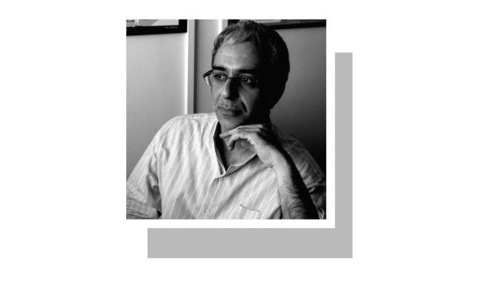 One can only marvel at the wisdom of whoever first said: “Success has many fathers, failure has none”. And it is all about who parented the stock market boom, that has seen shares at the Karachi Stock Exchange rise by a phenomenal 112 per cent during 2002— and are still climbing.
One can only marvel at the wisdom of whoever first said: “Success has many fathers, failure has none”. And it is all about who parented the stock market boom, that has seen shares at the Karachi Stock Exchange rise by a phenomenal 112 per cent during 2002— and are still climbing.
Except for Colombo which managed gain of 36 per cent, all markets across the world had hit the floor during 2002. The European bourses and US Dow Jones plunged to their seven-year lows and many star stock analysts, who at the start of the year were sending out ‘buy’ notes from reputed stock brokerage firms on the Wall Street, understandably lost their jobs. The Pakistani bourses nonetheless, took the happy direction north. So who deserves to be garlanded for the KSE’s outstanding performance? As it happens, everyone is taking a step forward with their heads down and expecting the feel of flowers around the neck.
On several occasions, Mr. Shaukat Aziz, advisor to the PM on finance has claimed that “turnaround in the country’s economy resulting from the economic reforms of the government” was the reason for unprecedented boom at the KSE. The advisor has said that stabilisation and structural reform measures undertaken during the last three years by the government had brought the economy at the stage of take-off. He has also stated that regulatory measures had resulted in a market of visible integrity and transparency in terms of price discovery and trade settlement, which had increased investor confidence.
Taking care not to raise his voice above that of the advisor to the PM on finance, the chairman Securities and Exchange Commission of Pakistan (SECP), Khalid Mirza, has nonetheless made quite an effort to insist that the stock markets have hit the roof, due to the reconstitution of the bourses’ boards, the circuit breakers, the code of corporate governance and all those nice things about quarterly disclosure of accounting figures, etc. that the SECP did. The KSE board of directors 2002 has been noticeably quiet; possibly because of its docile chairman, Salim Chamdia, who lost the opportunity to make all those right noises to earn credit, which many other hawks in his place would surely have done.
But the question is: Could any one in government or a regulator, anywhere in the world, claim to be able to do anything that, with absolute certainty would send a stock market in such immediate future that high or that low? A claim like that would be untenable for such a man would need to do nothing else and still be the envy of Bill Gates - Microsoft’s big boss - whom he would quickly replace as the richest man in the world. But here is everybody who is somebody saying either of the two things: “I did it” or “I had told you so”. It is quite a different matter that no one recalls if anyone in authority really came forward to accept responsibility for the settlement crisis that had gripped the stock market in 2000 or the badla crisis of 2001. At the time, what everyone was doing was to place the blame squarely at the other man’s door.
The regulator of the banking sector and the Governor State Bank of Pakistan,DrIshrat Husain, has kept himself out of the argument of who deserves the pat on the back for the stock boom. But his handling of the monetary policy has helped stabilise the Rupee, reduce debts and decrease interest rates, which is why institutions—the lead buyers in stocks—shifted cash from PIBs and TBills to the high-yield stocks. Not the foreigners, nor the retailers, but institutional investors have incontrovertibly sparked the current stock market rally. The retail investors have followed and now that the world’s prestigious publications, such as the ‘USA Today’ and ‘Business Week’ have been screaming with headlines: “Pakistan, best performing market in the world”, international fund managers are peering at their radar screens, yet again on the distant spot, where once almost a decade ago they had burnt their fingers.
The overseas fund managers had then come in to explore the new south Asian market that had thrown open its doors to foreign investors and where stocks looked to be trading at incredibly low single digit multiples. Foreign funds aren’t yet known to be coming back in droves. But no one needs them any more for the engine that drives the markets is already there: Liquidity and the exceedingly high yields on equities.
Due to the crackdown on the ‘hundi’ and the ‘hawala’ system following 9/11,remittances have been flowing in through the banking channels, increasing the foreign exchange reserves as well as strengthening the rupee. Bless the reverse capital flows and the de-dollarization of the economy, the market has never been so much flush with hot money. And where should all those rupees go?
With a yield as high as 14 per cent (not even counting the whopping 112 per cent earnings in capital gains), the share market offered higher returns compared to every other investment option: The PIBs, TBills, National Saving Schemes (NSS), bank deposits, gold and the real estate, which is why investors turned to stocks. “The fact that interest rates are low and expected to decline further is the primary positive fundamental factor driving the market”, say analysts.
Banks are flush with excess liquidity. Banking institutions are finding it difficult to invest their funds profitably. Yields on long-term government securities such as PIBs have fallen below 6 per cent per annum; while average cost of funds for a medium-sized bank is around 7 per cent per annum (inclusive of management expenses). Financial institutions are also barred from investing in National Savings Schemes, thus restricting their options. These institutions have thus built up substantial equity portfolios specifically in dividend yield stocks.
Moreover, there is the tax advantage that dividends from stocks enjoy over interest from fixed income securities. Dividend income from equities is taxed at 5 per cent (withholding tax) for corporations and 10 per cent for individuals, while the enormous capital gains are all tax free. Compared to that interest income from financial institutions is taxed at the normal rate (47 per cent for banks, 35 per cent for corporations and 30 per cent for individuals). “This huge tax advantage makes equities on an after-tax basis very attractive compared to interest yielding instruments”, says Abdullah Amin, analyst at Taurus Securities. For individual investors, the relevant yield comparison is with certificates under the National Savings Schemes. The rates of returns on NSS are being consistently lowered, every six months. And after the recent reduction in NSS rates, the three-year Special Saving Certificates is paying just about 8.67 per cent per annum. And even that yield would now be taxed at the full income tax rate, while dividends continue to be taxed at 10 per cent rate for individuals.
But why argue. The true test of whether it is the yield and the liquidity or the long list of reforms that the government claims, which sent the stock prices hitting the ceiling, is yet to come: If the prices of stocks continue to climb when the yield on six most actively traded stocks drop to comparable returns on other investment options, then it is the investors’ confidence in equities spurred by the proclaimed government’s policies and reforms. If not, then all the cacophonous hullabaloo descending down from Islamabad has been for nothing; and the reason simply has been the investors’ instinct to put money where it would multiply in the quickest possible time.














































Dear visitor, the comments section is undergoing an overhaul and will return soon.